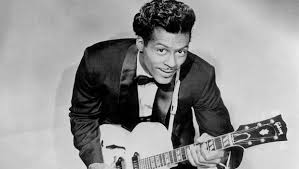Columnist Madison Villalobos
Music is a language in itself. Artists make songs out of beats, and they make those beats out of chords and scales, just like you make a sentence out of words, and make those words out of letters. To the musical geniuses of the world, the ins and outs of music come to them like it is their first language.
In today’s generation the music industry is more transparent than ever before. Artists write songs alluding to social issues and controversies they have individually faced throughout their lives.
They express these experiences with honesty, whether it is detrimental to their careers or a positive push in the right direction.
Both fans and haters are quick to call artists out for their wrongdoings. These artists typically turn to their music to give their side of the story, when their thoughts and actions make their listeners feel confused or even betrayed.
According to Noisey, people view artists as a product of the work they create. If they appear to be decent people, viewers are more likely to listen to their music with the thought that it is appealing. On the other hand, if the public perceives an artist’s image as negative then listeners tend to become close-minded to their music.
There are some well-known artists that the public reveres for their contributions to the music industry, but have found themselves in sticky situations throughout their lives.
Elvis Presley is a music legend who shaped the history of rock and roll. There were several factors that contributed to his fame aside from his good looks, charm and voice.
Presley created music that he and the rest of the world wanted to get up and dance to. He was known for his smooth moves, timeless songs and his liking for young girls.
According to an online report by Grunge, the “appropriate” age for an Elvis girl was 14 years old, and when the 22-year-old king of rock went on tour, he took a group of his 14-year-old fans. During this time, Presley met his wife Priscilla, who was also 14 years old when he was 24.
His exes talked about the erratic and violent side of Presley in their memoirs, where they revealed how his life quickly turned upside down with drugs and violence.
Even more recent was the death of Chuck Berry, which reignited the conversation of an artist’s personal life reflecting their musical legacy. Berry is known for putting together songs that were rich and unique, as well as making the guitar the ultimate instrument of rock and roll music.
Critics and outsiders have defined Berry’s life by his relationships with others, which lead many to harsh judgments, and rightfully so. Berry was known for getting in some trouble with the police.
Throughout his career police charged him with having videotapes and photographs of underage girls, busted him for drug raids in his home and he violated the White Slave Traffic Act when he transported young girls over state lines to engage in sexual relations.
Meanwhile, as stated in the Riverfront Times, some fans stand by the idea that his personal flaws don’t invalidate the music he put out into the world.
Listeners create a checklist to measure all the good and bad in artists like Berry. But is the more conscientious thing to do acknowledge that the music Berry created was not a reflection of his character, even if it presented his mind and soul? It is up to the listeners to determine whether they should tie Berry’s legacy as a musician together with his personal life.
In present-day music culture, fans are at a crossroads where they want their favorite artists to be good people. But what should fans do when their favorite artist make choices that hurt others?
The decisions and intimate details of these artist’s lives are constantly exposed through social media.
After knowing what fans know, they should decide to stand by them and continue to support them or decide if it is morally correct to stop listening to their music completely.




































